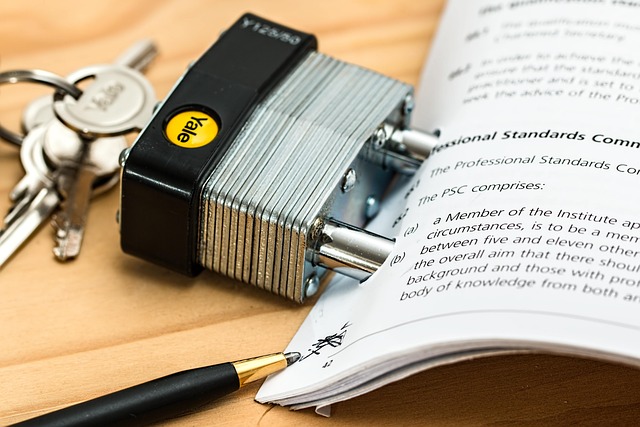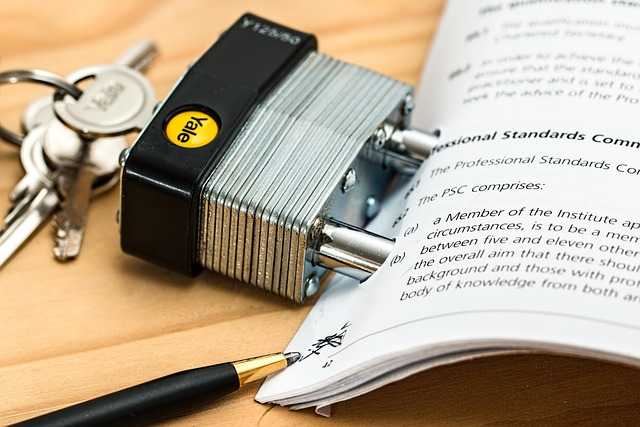Confidential divorce mediation offers a private, collaborative approach to secure negotiations for sensitive matters like child custody, alimony, and asset division. Neutral mediators maintain strict confidentiality, enabling open communication without public scrutiny. This process fosters mutual understanding, allowing couples to reach fair, tailored agreements while protecting personal and financial details during investment separation and real estate division.
Confidential divorce mediation offers a secure and private avenue for couples to navigate their separation, ensuring sensitive details remain confidential. This article explores how this process protects family dynamics, financial affairs, and personal information while fostering mutual agreements. We delve into the role of neutral mediators, legal protections, and financial disclosures, highlighting why secure divorce negotiations are key to reaching resolutions that best suit all involved.
- Understanding Confidential Divorce Mediation
- Protecting Sensitive Information During Negotiations
- The Role of Neutral Third-Party Mediators
- Mutual Agreements: A Private Process
- Financial Disclosures and Privacy Measures
- Maintaining Privacy: Legal Protections in Place
Understanding Confidential Divorce Mediation

Confidential divorce mediation is a collaborative process designed to facilitate secure negotiations between divorcing partners. Unlike traditional litigation, which can be public and contentious, this approach prioritizes privacy and mutual understanding. Skilled mediators help couples navigate sensitive topics like child custody, alimony, and division of assets—including property equity distribution and investment separation help—in an open yet confidential setting.
The process ensures that personal details and financial information remain private throughout. This not only fosters a safer environment for vulnerable discussions but also encourages candid communication. As a result, couples can work together to develop mutually agreeable solutions without the pressure of public scrutiny or legal repercussions, thereby achieving a smoother transition following their separation.
Protecting Sensitive Information During Negotiations

During confidential divorce mediation, all parties involved agree to maintain strict privacy and confidentiality. This ensures that sensitive information shared during negotiations remains secure. The mediator acts as a neutral third party, facilitating open dialogue while adhering to strict ethical guidelines to protect personal, financial, and family details.
This level of discretion is especially vital when dealing with complex matters such as investment separation help, asset split planning, and property equity distribution. Confidentiality allows each spouse to discuss these sensitive topics freely, knowing their private affairs will not be disclosed or used against them later. It fosters an environment conducive to mutual understanding and cooperation, enabling both parties to reach fair agreements without the added stress of public exposure.
The Role of Neutral Third-Party Mediators

Neutral third-party mediators play a pivotal role in secure divorce negotiations. Their primary responsibility is to facilitate open and honest communication between both parties while ensuring that sensitive information remains strictly confidential. Mediators provide an unbiased environment, allowing couples to navigate complex issues such as property equity distribution and asset split planning without the pressure of formal court proceedings. This approach not only fosters a more amicable atmosphere but also encourages collaborative problem-solving, which can lead to mutually beneficial agreements.
By engaging a professional mediator, couples can focus on reaching resolutions that best suit their individual needs and interests. Mediators help in breaking down emotional barriers and guiding discussions towards practical, realistic outcomes. This process ensures that investment separation help is tailored to the specific circumstances of each case, promoting a smoother transition and reducing the potential strain on all involved parties.
Mutual Agreements: A Private Process

Mutual agreements are at the heart of confidential divorce mediation. This private process empowers couples to navigate their separation while maintaining control over sensitive details. Unlike court proceedings, where information is publicly disclosed, mediation keeps conversations and documents confidential. This ensures that personal matters, financial assets, and real estate holdings remain secure and out of prying eyes.
Through open communication facilitated by a neutral mediator, spouses can collaboratively plan for the future, including asset split planning and even complex issues like real estate division mediation. The joint property dissolution process becomes less adversarial when both parties work together to reach mutually agreeable terms, fostering a more amicable divorce experience.
Financial Disclosures and Privacy Measures

During confidential divorce mediation sessions, financial disclosures are a critical component of secure negotiations. Spouses exchange detailed information about their assets, including bank statements, investment portfolios, and real estate holdings. This transparent sharing facilitates an equitable asset split planning. The mediator ensures that both parties understand the full scope of each other’s finances, promoting fairness and mutual agreement.
Privacy measures are rigorously enforced to protect this sensitive data. Mediators use secure systems for document storage and communication channels with encrypted access. This approach safeguards financial details from prying eyes, fostering an environment conducive to open dialogue. As a result, couples can navigate complex investment separation help and real estate division mediation with the assurance that their private affairs remain confidential.
Maintaining Privacy: Legal Protections in Place

In confidential divorce mediation, robust legal protections are in place to safeguard sensitive information shared during secure negotiations. This includes family details, financial records, and personal assets, ensuring privacy for all parties involved. The process is designed to foster open communication while maintaining confidentiality, allowing couples to make informed decisions without external scrutiny.
Divorce often involves complex matters such as real estate division mediation, investment separation help, and asset split planning. Skilled mediators facilitate these discussions, guiding spouses toward mutually agreeable solutions. By keeping the process private, individuals can openly discuss their unique circumstances, ensuring that sensitive information remains secure and out of public view.
